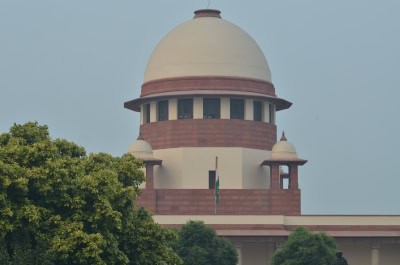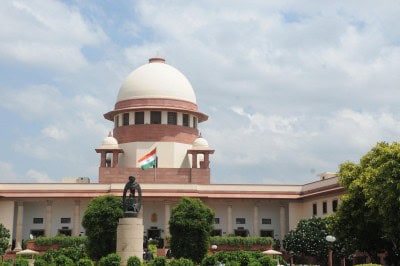 New Delhi, Sep 1 : The Supreme Court on Tuesday, while hearing the suo moto case concerning problems and miseries of migrant labourers as a result of the lockdown, said non-filing of affidavits by Maharashtra and Delhi “clearly indicates they are not interested” in implementing its directions connected with addressing this issue.
New Delhi, Sep 1 : The Supreme Court on Tuesday, while hearing the suo moto case concerning problems and miseries of migrant labourers as a result of the lockdown, said non-filing of affidavits by Maharashtra and Delhi “clearly indicates they are not interested” in implementing its directions connected with addressing this issue.
In the order on June 9, the apex court, citing the Inter-State Migrant Workmen (Regulation of Employment and Conditions of Service) Act, 1979; the Construction Workers (Regulation of Employment and Conditions of Service) Act, 1996; and the Unorganised Workers’ Social Security Act, 2008, asked states to spell out measures taken by them in connection with these laws.
On July 31, the top court sought to know the measures — short-term and long-term –taken by the different states to facilitate necessary registration under the aforesaid enactments through which a large number of migrant workers and unorganised labourers could reap benefits.
On Tuesday, the top court said, by its July 31 order, it had specifically directed the states to file an affidavit specifically with regard to operation of the three enactments.
A bench comprising Justices Ashok Bhushan, R. Subhash Reddy and M.R. Shah said: “When the Court passed specific order directing the states to file affidavits, the court’s intention was to see the working of the aforesaid acts. Non-filing of affidavit clearly indicates that the states are not interested in implementing the aforesaid enactments.”
The observation from the top court came after it was informed that Maharashtra and Delhi are yet to file their reply in the matter.
“Although various states have filed their reply but the states of Maharashtra and NCT of Delhi have not filed their affidavits in compliance of our order dated July 31. The states of Maharashtra and Delhi are the states where the maximum number of migrants have come and are working,” the bench noted.
After a brief hearing on the matter, the top court granted two weeks to Maharashtra and Delhi, as well as other states which have not complied with its July 31 order, and posted the matter for further hearing after two weeks.
On July 31, the apex court had said the states are required to bring on record the mode and manner in which records of migrant labourers who have reached their native places are being maintained with their skill, nature of employment and other details.
Disclaimer: This story is auto-generated from IANS service.

